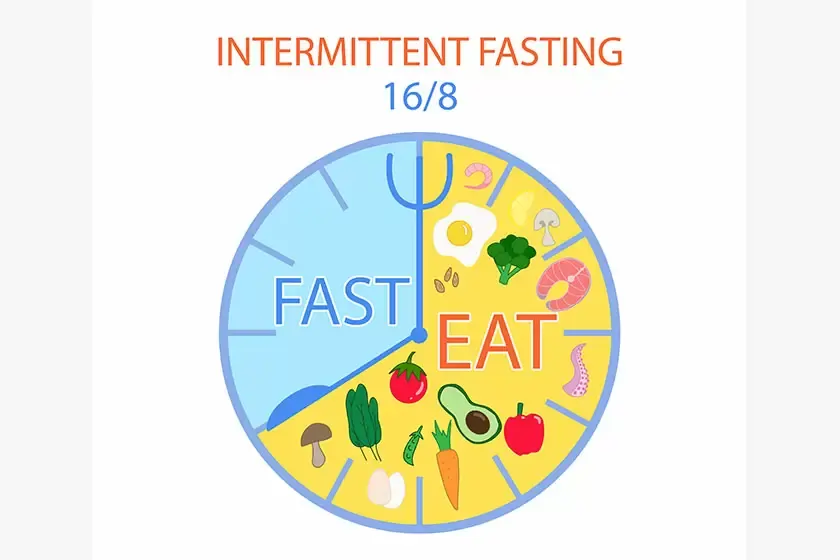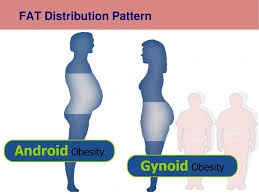16/8 Intermittent Fasting
Introduction:
16/8 intermittent fasting is one of the most well-liked fasting methods. Supporters assert that it’s a simple, practical, and long-term method of weight loss and general health improvement.
Limiting your daily food intake to a specific window of time is known as intermittent fasting. It has gained popularity for improving general health and helping people lose weight. Understanding what to consume while intermittent fasting will help you lose weight.
Fasting has been a significant custom in many religions and societies worldwide for thousands of years.
Modern forms of fasting give this age-old custom a fresh twist.
This post covers how to conduct 16/8 intermittent fasting and if it’s right for you.
What is intermittent fasting at 16:8?
The 16:8 intermittent fasting protocol described above is an example of a specific type of time-restricted fasting. Eating is limited to eight hours of the day, while the remaining sixteen hours are spent fasting.
The circadian rhythm, the body’s internal clock, is thought to be supported by this technique.
The majority of 16:8 adherents skip meals at night and for a portion of the morning and evening. They often eat their regular allotment of calories in the middle of the day.
During the eight-hour interval, there are no limitations on the kinds or quantities of food that can be consumed. The strategy is comparatively simple to follow because of its flexibility.
What is the process of intermittent fasting?
There are many different approaches to intermittent fasting, but they all center on choosing regular times to eat and fast. For instance, you may endeavor to fast the remaining of the moment and exclusively eat for eight hours. Cutting back to just one meal twice a week is a further option. Schedules for intermittent fasting vary widely.
The body uses up all of its sugar reserves and begins burning fat after going several hours without eating, according to Mattson. Einstein refers to this as metabolic switching.
The way intermittent fasting works is by extending the time that your body starts burning fat after burning through the calories from your most recent meal.
How to accomplish it:
Selecting a 16-hour fasting window that incorporates sleep time is the simplest method of adhering to the 16:8 diet.
Finishing meals in the early evening is advised by some experts because metabolism slows down after this period. This isn’t possible for everyone, though. Avoiding meals for two to three hours before bed is also advised.
Individuals can select from the following eight-hour meal times:
- 9 a.m. to 5 p.m.
- 10 a.m. to 6 p.m.
- noon to 8 p.m.
People can consume their meals and snacks whenever it’s convenient for them during this time. It’s crucial to eat frequently to minimize blood sugar spikes and falls as well as excessive hunger.
To determine the ideal mealtimes and window for their lifestyle, some people might need to try a few different approaches.
Suggested foods and advice for intermittent fasting:
It is helpful to concentrate on eating wholesome foods and limiting or avoiding junk food, even if the 16:8 intermittent fasting diet does not define which items to eat and avoid.
The main objectives of a balanced diet are:
- The fruits and vegetables, regardless of whether they are consumed fresh, frozen, or tinned.
- complete grains including oats, brown rice, quinoa, and barley
- Examples of lean protein sources are eggs, fish, chicken, beans, lentils, tofu, almonds, seeds, and low-fat cottage cheese.
- Fatty fish, olives, coconuts, avocados, nuts, seeds, and olive oil are good sources of healthful fats.
- Due to their high fiber content, fruits, vegetables, and whole grains can help people feel content and full for longer.
- Proteins and healthy fats can also help you feel full.
For people on the 16:8 intermittent fasting diet, beverages may contribute to feelings of fullness. Other fasting techniques stress the significance of consistently consuming water throughout the day.
Drinking calorie-free beverages like water, unsweetened tea, and coffee will help you stay hydrated and prevent dehydration.
Advice:
The following may make it simpler for people to follow the 16:8 intermittent fasting plan:
- consuming water often during the day and adding flavors such as chopped cucumber, lemons, or lime to make it better palatable
- reducing television viewing to lessen exposure to food-related visuals, which could boost the feeling of hunger.
- Engaging in aerobic exercise may assist some people in suppressing their hunger.
- Eating meals while engaging in intuitive or mindful eating
- attempting meditation to help your hunger cravings subside throughout the fasting period
What advantages does a 16-hour fast offer?
A 16:8 eating plan, sometimes referred to as 16-hour intermittent fasting, calls for consuming only sugar liquids such as green tea, black coffee, and water. Following that, you can eat every one of your meals as well as snacks for the following eight sessions of the day.
The 16-hour timeframe might seem appropriate, but you should be asleep for around half of that time if you’re getting enough sleep.
A 16:8 intermittent fasting diet has the following advantages:
Loss of weight:
The ultimate objective of intermittent fasting is weight loss. A study of 40 different research kinds published in Molecular and Cellular Endocrinology found that somebody weighing just over 90 kg may, on average, lose 5% of their body weight in 10 weeks.
The eight-hour fast produces the same calorific restriction and weight loss as the 16:8 diet plan, so people can lose weight without counting calories, according to a 2018 study in the Journal of Economics and Healthy Eating.
Enhances cardiac health:
In people with cardiac conditions, consistent fasting has been linked to a longer lifespan and a lower risk of heart failure.
Even one day of fasting every month can have a big effect on heart health when done throughout a lifetime.
Encourages restful sleep:
Research suggests that while eating too much can create sleep disturbances, intermittent fasting may help improve our circadian rhythm or sleep-wake cycle.
lessens tension:
Inflammation and the stress hormone cortisol are decreased by the 16:8 diet. You won’t have to deal with hunger two days a week, which is also good for your mental health.
The fact that you won’t have to deal with hunger two days a week is also good for your mental health.
People who have followed the 16:8 diet report being far more productive during the fasting hours and devoting more of their focus to other useful activities throughout the day rather than thinking about food.
Is it safe to intermittent fasting?
Some people use intermittent fasting to control their weight, while others use it to treat long-term health issues including osteoarthritis, high cholesterol, or irritable bowel syndrome. The practice of intermittent fasting isn’t for every individual, though.
Consult your primary care physician before beginning an intermittent fasting regimen or any diet. Intermittent fasting should not be tried by some people:
- children and adolescents younger than eighteen.
- women who are nursing or pregnant.
- Insulin-using people with type 1 diabetes.
Intermittent fasting is safe for patients with type 2 diabetes, according to a growing number of clinical trials; however, no research has been done on people with type I diabetes.
However, intermittent fasting can be continued continuously by those who do not fall into these categories and can do it safely. It has the potential to be a beneficial shift in lifestyle.
Keep in mind that intermittent fasting may have various reactions in different persons. If you start experiencing sudden headaches, nausea, or anxiety after starting intermittent fasting, speak with your doctor.
What disadvantages does a 16-hour fast have?
Although 16:8 fasting has been shown to have advantages, there are some drawbacks, such as:
Restricting consumption to eight hours a day might lead some people to overeat during mealtimes to make up for the hours they were fasting.
Weight gain, digestive problems, and the development of bad eating habits are possible outcomes of this.
When you first start 16:8 intermittent fasting, you may experience short-term negative side effects like weakness, hunger, and fatigue. However, after you settle into a groove, these tend to diminish.
Additionally, there is evidence that intermittent fasting has different effects on men and women. Animal studies suggest that intermittent fasting may hinder female fertility and reproduction. To evaluate the effect of intermittent fasting on reproductive health, more human studies are necessary.
In any case, start slowly and if you have any negative side effects or have any concerns, think about stopping or seeing your doctor.
Risks and adverse effects of intermittent fasting:
There are certain hazards and adverse consequences related to the 16:8 intermittent fasting diet. The plan is therefore not appropriate for everyone. Possible risks and negative consequences include the following:
feeling ill and having headaches, constipation, irritability, lethargy
substantial weight loss in senior citizens
Overeating or consuming unhealthy meals during the 8-hour window because of extreme hunger might be harmful to people who are taking certain medications or have certain medical conditions.
A history of problematic eating may make people fear intermittent fasting. Fasting is a risk factor for eating disorders, according to the National Eating Disorders Association.
According to the National Institute on Aging, there is not enough data to support the recommendation of any fasting diet, particularly for senior citizens.
Those who are pregnant, nursing, or attempting to conceive should not follow the 16:8 intermittent fasting diet.
Before using the 16:8 method or any other kind of intermittent fasting, people should see their physician, particularly if they:
possess an underlying medical condition, like diabetes or hypotension.
use drugs to treat heart disease or high blood pressure.
possess a history of eating disorders
A doctor should be consulted by anyone who has any worries or suffers from any negative consequences of the diet.
Summary
One type of intermittent fasting that has time restrictions is the 16:8 diet. It involves a 16-hour quick and an 8-hour timeframe for meals.
Weight loss, fat loss, and a lower risk of certain diseases are possible advantages. Eating complete foods high in fiber and drinking plenty of water throughout the day are the main goals of 16:8 intermittent fasting.
Not everyone is a good fit for the plan. If a person has any worries or underlying medical disorders, they should consult a physician or nutritionist before beginning the 16:8 intermittent fasting diet.
FAQs
Is intermittent fasting from 16 to 8 beneficial?
It is true that when combined with a good diet and manner of life, 16/8 intermittent fasting can be a safe, straightforward, and lasting strategy to improve your health.
What are the fundamental guidelines for intermittent 16:8 fasting?
It entails consuming all calories throughout the remaining eight hours of the day while fasting for 16 hours. The 16:8 regimen is said to help people lose weight and fat while preventing type 2 diabetes and other diseases linked to obesity.
What timetable works best for intermittent fasting at 16:8?
Similar to the 14/10 IF plan, the 16/8 IF program has a 2-hour fast. This implies that you have a two-hour window for eating. With that in mind, you can choose to consume concerning 9 a.m. to 5 p.m. For example, you could fast until midday and have your last meal at 8 p.m.
Is it considered fasting to sleep?
When you’re sleeping, does fasting still count? Fasting is the practice of not eating, therefore as long as you’re not eating, it doesn’t matter what you’re doing. Even if you spend most of your fasting time asleep, you can still reap the benefits of fasting.
References
- Ld, L. S. M. R. (2024, August 1). What Is 16/8 Intermittent Fasting? A Beginner’s Guide. Healthline. https://www.healthline.com/nutrition/16-8-intermittent-fasting#recommendation
- Mbbs, S. M. (2021, December 21). What Happens to Your Body When You Fast for 16 Hours? 16:8 Diet. MedicineNet. https://www.medicinenet.com/what_happens_to_you_when_you_fast_for_16_hours/article.htm






